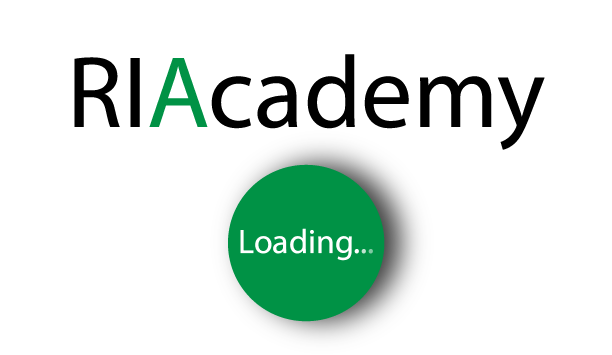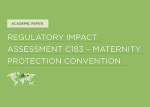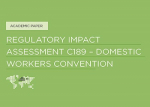
About RIAcademy
__________________
Regulatory Impact Assessment (RIA) is a core tool for regulatory quality. It is a systemic approach to structurally define policy issues and critically assessing the likely positive and negative effects of the regulatory and non-regulatory alternatives proposed to address them.
Georgia has formally institutionalized Regulatory Impact Assessment (RIA) in 2020, with the amendment to the Law on Normative Acts, which is a substantial step towards evidence-based, participatory policy decision-making in the country.
RIA Reports
-
Gender Impact Assessment of the State Programme Plant the Future
The Gender Impact Assessment (GIA) of the programme Plant the Future was conducted by the ISET Policy Institute (ISET-PI) as part of its collaboration with UN Women within the scope of the project “Regulatory Impact Assessment and Gender Impact Assessment for Women’s Economic Empowerment in Georgia”. This study represents an ex-ante GIA of the programme Plant the Future initiated by the Ministry of Environmental Protection and Agriculture of Georgia (MEPA) and implemented by the Ministry’s Rural Development Agency (RDA). The programme was introduced by the MEPA in 2015 and runs in almost every region of the country. Plant the Future supports the development of nursery and perennial gardens in the regions and currently offers financial support/subsidies for three separate components: (1) perennial gardens; (2) nursery gardens;… Read More
-
Gender Impact Assessment Methodology
The gender impact assessment (GIA) is an equality tool that helps assess the gendered impact of different policies, programmes and services. It provides technical knowledge to enhance public sector organizations, think tanks and international development organizations to create gender-responsive and equitable programmes. It is a useful evidence-based policymaking tool that aims to achieve the best possible outcome from incorporating a gender dimension into the governance process and increase its efficiency. This methodology clarifies the concepts underlying the GIA and provides guidelines for its practical use. It is designed to assist government officials, policymakers, practitioners, trainers and the international donor community, as well as others interested in this dynamic and evolving area of incorporating gender issues while planning, implementing, monitoring and/or evaluating any policy, law or draft law, activity… Read More
-
Regulatory Impact Assessment of ILO C183 – Maternity Protection Convention
 The Maternity Protection Convention, 2000 (No. 183), was established by the ILO to promote “equality of all women in the workforce and the health and safety of the mother and child”. The Convention sets minimum standards that need to be implemented in order for pregnant women and working mothers to be adequately protected in the labour market. The Convention has so far been ratified by 38 ILO member countries. Georgia, a member of the ILO since 1993, has not yet ratified the Convention. Even as the Labour Code of Georgia made significant progress over the past decade (e.g. increasing the ceiling on paid maternity leave benefits in 2013 and introducing the paid parental leave concept in 2020), important maternity protection aspects of the law… Read More
The Maternity Protection Convention, 2000 (No. 183), was established by the ILO to promote “equality of all women in the workforce and the health and safety of the mother and child”. The Convention sets minimum standards that need to be implemented in order for pregnant women and working mothers to be adequately protected in the labour market. The Convention has so far been ratified by 38 ILO member countries. Georgia, a member of the ILO since 1993, has not yet ratified the Convention. Even as the Labour Code of Georgia made significant progress over the past decade (e.g. increasing the ceiling on paid maternity leave benefits in 2013 and introducing the paid parental leave concept in 2020), important maternity protection aspects of the law… Read More
-
Regulatory Impact Assessment of ILO C189 – Domestic Workers Convention
 The International Labour Organization (ILO) Domestic Workers Convention, 2011 (No. 189), aims to promote decent work for all and to ensure fundamental protections and rights to domesticworkers. Domestic workers’ contribution to the economy is substantial by providing critical services to households and enabling others to work outside the home, participate in the labour market and pursue educational and social activities. However, promoting decent work for domestic workers has not been a priority for the Government of Georgia thus far. The harmonization of the Georgian legislation with ILO Convention No. 189 would be essential for domestic workers, especially for women as they constitute the majority of domestic workers.
Read More
The International Labour Organization (ILO) Domestic Workers Convention, 2011 (No. 189), aims to promote decent work for all and to ensure fundamental protections and rights to domesticworkers. Domestic workers’ contribution to the economy is substantial by providing critical services to households and enabling others to work outside the home, participate in the labour market and pursue educational and social activities. However, promoting decent work for domestic workers has not been a priority for the Government of Georgia thus far. The harmonization of the Georgian legislation with ILO Convention No. 189 would be essential for domestic workers, especially for women as they constitute the majority of domestic workers.
Read More
-
RIA Manual for Practitioners
Quality policymaking benefits from a process that is predictable, transparent, participatory, and accountable. This type of process helps make decisions that are legitimate, justified, effective, and proportionate. It is important to note immediately that regulation is only one possible option available for governmental intervention in society and the economy (see Box 1 for a definition of regulation). This view is fully incorporated in article 30 of ordinance No. 35, according to which: • If, on the basis of a draft RIA report, it has been established that the best option to resolve a problem/issue is legislative regulation, an authorized official of the initiating agency shall make a decision on including the issue in the… Read More
- 1
- 2
- 3
›
‹
RIA Trainings
| # | Training title | Time | Donor | Target Group |
| 1. | RIA Trainings for Parliament (Healthcare and Social Issues Committee, Sector Economy and Economic Policy Committee of the Parliament of Georgia) | 2017 | Parliament of Georgia | Parliament of Georgia |
| 2. | Training on Regulatory Impact Assessment (RIA) | 2018 | USAID Energy Program | |
| 3. | Training on Regulatory Impact Assessment (RIA) | 2018 | USAID Good Governance Initiative (GGI) | Ministry of Justice, Ministry of Finance, Ministry of Economy and Sustainable Development |
| 4. | RIA trainings for Ministry of Justice | 2018 | EU project | Ministry of Justice of Georgia |
| 5. | RIA training and coaching Ministry of Justice | 2018 | EU project | Ministry of Justice of Georgia |
| 6. | RIA Trainings for Parliament (Environment and Natural Resource Committee of the Parliament of Georgia) | 2018 | Parliament of Georgia | Parliament of Georgia |
| 7. | RIA Trainings for Parliament (Staff of Sport’s and Youth Issues, Education Committees and Research Department of the Parliament of Georgia, Tbilisi, Georgia) | 2018 | Parliament of Georgia | Parliament of Georgia |
| 8. | Training on Regulatory Impact Assessment (RIA) | 2020 | USAID Economic Governance Program (EGP) | Administration of the Government of Georgia, National Bank of Georgia, Georgian Parliament Research Center and different Ministries |
| 9. | RIA Trainings for Staff of Ministry of Infrastructure and Regional Development, Ministry of Finance, Ministry of Economy of Georgia | 2020 | USAID Good Governance Initiative (GGI) | Infrastructure and Regional Development, Ministry of Finance, Ministry of Economy of Georgia |
| 10. | Training on Regulatory Impact Assessment (RIA) Staff of Ministry of Environment and Natural Resource Protection, Ministry of Economy, Ministry of Justice | 2020 | GIZ | Ministry of Environment and Natural Resource Protection, Ministry of Economy, Ministry of Justice |
| 11. | training course in Regulatory Impact Assessment (RIA) for public servants | 2020 | USAID Energy Program | Public servants and major government stakeholders in the energy sector |
RIA Partners







